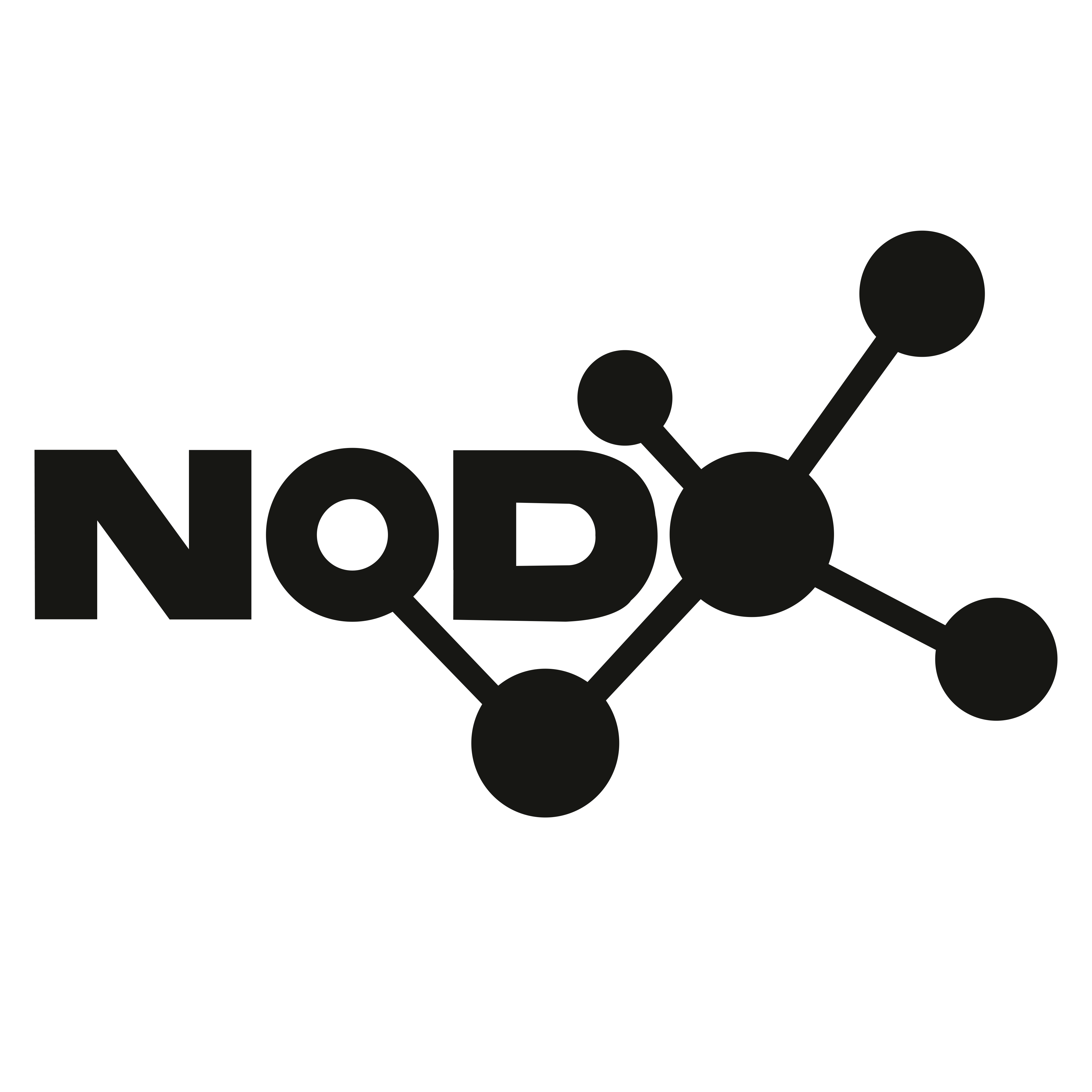Bug Bounty Recon (bbrecon) is a free Recon-as-a-Service for bug bounty hunters and security researchers. The API aims to provide a continuously up-to-date map of the Internet "safe harbor" attack surface, excluding out-of-scope targets.
It comes with an ergonomic CLI and Python library.
This repository holds the CLI and Python library. Please see the website for more details.
Important Notice
While effort is taken to ensure the results returned by bbrecon are reliable and trustworthy, this service and its operators are in no way responsible for what you do with the data provided.
Double check your scopes and ensure you stay within safe harbors.
Features
Status
bbrecon is in a gradual Beta release phase; major features are released every few weeks to get feedback and fix kinks. You can sign up and start using it, but be aware that breaking changes may be deployed without notice. While the service and infrastructure is designed to scale, it is not currently configured to serve a large global audience. This will change, but for now YMMV.
Help
Please report bugs with GitHub issues.
Use the Gitter chat for support or enquiring about service availability during beta.
Getting Started
API key
Fetch an API key from the Console: https://console.bugbountyrecon.com
Only Google SSO is supported at this time.
Installation
$ pip3 install bbrecon
$ bbrecon configure key
Enter your API key: YOUR_API_KEY
You can alternatively set the BBRECON_KEY environment variable if you prefer.
CLI
The following will output all programs released in the last month that have "web" type targets (APIs/web apps):
$ bbrecon get programs --type web --since last-month
SLUG PLATFORM CREATED REWARDS MIN.BOUNTY AVG.BOUNTY MAX.BOUNTY SCOPES TYPES
cybrary bugcrowd 2020-07-22 fame $0 $0 $0 6 android,ios,web
expressvpn bugcrowd 2020-07-14 cash,fame $150 $1047 $2500 17 android,ios,other,web
prestashop yeswehack 2020-07-23 cash $0 $0 $1000 1 web
...
To get scopes for specific programs, use get scopes:
$ bbrecon get scopes rockset codefi-bbp
SLUG PLATFORM TYPE VALUE
rockset hackerone web console.rockset.com
rockset hackerone web docs.rockset.com
rockset hackerone web api.rs2.usw2.rockset.com
codefi-bbp hackerone web activate.codefi.network
To get domains for specific programs, use get domains:
$ bbrecon get domains dropcontact rebellion-defense
SLUG DOMAIN CREATED
dropcontact www.dropcontact.io 2020-08-23
rebellion-defense mooch.rip 2020-08-23
rebellion-defense www.rebelliondefense.com 2020-08-23
rebellion-defense rebelliondefense.com 2020-08-23
...
Most commands can output JSON to make it easy to work with your scripts. Try --output json:
$ bbrecon get programs --output json
[
{
"url": "https://bugcrowd.com/optimizely",
"name": "Optimizely",
"platform": "bugcrowd",
"rewards": [
"cash",
"fame"
],
...
You can get information about specific programs by passing one or many slugs to the get programs command:
$ bbrecon get programs twago optimizely
SLUG PLATFORM CREATED REWARDS MIN.BOUNTY AVG.BOUNTY MAX.BOUNTY SCOPES TYPES
twago intigriti 2020-04-09 $0 $0 $0 5 web
optimizely bugcrowd 2018-03-22 cash,fame $0 $750 $5000 6 web
Use --help to get a list of filters for each command:
$ bbrecon get programs --help
...
Output format. [default: wide]
-n, --name TEXT Filter by name.
-t, --type TEXT Filter by scope type. Can be used multiple
times.
-r, --reward TEXT Filter by reward type. Can be used multiple
times.
-p, --platform TEXT Filter by platform. Can be used multiple
times.
--exclude-platform TEXT Exclude specific platform. Ignored if
--platform was passed. Can be used multiple
times.
-s, --since TEXT Filter by bounties created after a certain
date. A specific date in the format
'%Y-%m-%d' can be supplied. Alte rnatively,
the following keywords are supported:
'yesterday', 'last-week', 'last-month',
'last-year' as well as 'last-X-days' (where
'X' is an integer).
...
Note that some filters are lists, and can be used multiple times! If you wanted to get all programs that have mobile apps in scope you could run:
$ bbrecon get programs --type android --type ios
SLUG PLATFORM CREATED REWARDS MIN.BOUNTY AVG.BOUNTY MAX.BOUNTY SCOPES TYPES
square bugcrowd 2018-03-22 cash,fame $300 $492 $5000 4 android,ios,other,web
gojek bugcrowd 2018-03-22 cash,fame $200 $618 $5000 4 android,ios,web
smartthings bugcrowd 2018-03-22 fame $0 $0 $0 5 android,hardware,ios,web
...
Python
You are invited to check out this repo's codebase for more details, but to get started:
from bbrecon import BugBountyRecon
bb = BugBountyRecon(token=API_TOKEN)
programs = bb.programs(
types=["web", "ios"],
platforms=["hackerone"],
rewards=["cash"],
)
for program in programs:
print(f"{program.name} rewards up to ${program.maximum_bounty}!")
print(f"More information is available at: {program.url}")
for scope in program.in_scope:
if scope.type == "desktop":
print("Found a desktop app in scope for this program. Cool!")
REST API
You can interact directly with the REST API if you prefer. Check out the API docs here.

Continuar leyendo...
It comes with an ergonomic CLI and Python library.
This repository holds the CLI and Python library. Please see the website for more details.
Important Notice
While effort is taken to ensure the results returned by bbrecon are reliable and trustworthy, this service and its operators are in no way responsible for what you do with the data provided.
Double check your scopes and ensure you stay within safe harbors.
Features
- Public Programs - public bug bounty programs indexed and searchable with filters (live)
- Domains - domains in scope across programs (live)
- Private Programs - support for private programs (September 2020)
- Notifications - webhook alerts when programs are created, updated or domains discovered (September 2020)
- Endpoints - all HTTP and non-HTTP endpoints in scope across all programs (October 2020)
Status
bbrecon is in a gradual Beta release phase; major features are released every few weeks to get feedback and fix kinks. You can sign up and start using it, but be aware that breaking changes may be deployed without notice. While the service and infrastructure is designed to scale, it is not currently configured to serve a large global audience. This will change, but for now YMMV.
Help
Please report bugs with GitHub issues.
Use the Gitter chat for support or enquiring about service availability during beta.
Getting Started
API key
Fetch an API key from the Console: https://console.bugbountyrecon.com
Only Google SSO is supported at this time.
Installation
$ pip3 install bbrecon
If you intend to use the CLI, you should permanently configure your key:bbrecon requires Python >= 3.8 - if pip tells you it can't find bbrecon it's probably because pip is using another Python version. Check this with pip3 --version.
$ bbrecon configure key
Enter your API key: YOUR_API_KEY
You can alternatively set the BBRECON_KEY environment variable if you prefer.
CLI
The following will output all programs released in the last month that have "web" type targets (APIs/web apps):
$ bbrecon get programs --type web --since last-month
SLUG PLATFORM CREATED REWARDS MIN.BOUNTY AVG.BOUNTY MAX.BOUNTY SCOPES TYPES
cybrary bugcrowd 2020-07-22 fame $0 $0 $0 6 android,ios,web
expressvpn bugcrowd 2020-07-14 cash,fame $150 $1047 $2500 17 android,ios,other,web
prestashop yeswehack 2020-07-23 cash $0 $0 $1000 1 web
...
To get scopes for specific programs, use get scopes:
$ bbrecon get scopes rockset codefi-bbp
SLUG PLATFORM TYPE VALUE
rockset hackerone web console.rockset.com
rockset hackerone web docs.rockset.com
rockset hackerone web api.rs2.usw2.rockset.com
codefi-bbp hackerone web activate.codefi.network
To get domains for specific programs, use get domains:
$ bbrecon get domains dropcontact rebellion-defense
SLUG DOMAIN CREATED
dropcontact www.dropcontact.io 2020-08-23
rebellion-defense mooch.rip 2020-08-23
rebellion-defense www.rebelliondefense.com 2020-08-23
rebellion-defense rebelliondefense.com 2020-08-23
...
Most commands can output JSON to make it easy to work with your scripts. Try --output json:
$ bbrecon get programs --output json
[
{
"url": "https://bugcrowd.com/optimizely",
"name": "Optimizely",
"platform": "bugcrowd",
"rewards": [
"cash",
"fame"
],
...
You can get information about specific programs by passing one or many slugs to the get programs command:
$ bbrecon get programs twago optimizely
SLUG PLATFORM CREATED REWARDS MIN.BOUNTY AVG.BOUNTY MAX.BOUNTY SCOPES TYPES
twago intigriti 2020-04-09 $0 $0 $0 5 web
optimizely bugcrowd 2018-03-22 cash,fame $0 $750 $5000 6 web
Use --help to get a list of filters for each command:
$ bbrecon get programs --help
...
Output format. [default: wide]
-n, --name TEXT Filter by name.
-t, --type TEXT Filter by scope type. Can be used multiple
times.
-r, --reward TEXT Filter by reward type. Can be used multiple
times.
-p, --platform TEXT Filter by platform. Can be used multiple
times.
--exclude-platform TEXT Exclude specific platform. Ignored if
--platform was passed. Can be used multiple
times.
-s, --since TEXT Filter by bounties created after a certain
date. A specific date in the format
'%Y-%m-%d' can be supplied. Alte rnatively,
the following keywords are supported:
'yesterday', 'last-week', 'last-month',
'last-year' as well as 'last-X-days' (where
'X' is an integer).
...
Note that some filters are lists, and can be used multiple times! If you wanted to get all programs that have mobile apps in scope you could run:
$ bbrecon get programs --type android --type ios
SLUG PLATFORM CREATED REWARDS MIN.BOUNTY AVG.BOUNTY MAX.BOUNTY SCOPES TYPES
square bugcrowd 2018-03-22 cash,fame $300 $492 $5000 4 android,ios,other,web
gojek bugcrowd 2018-03-22 cash,fame $200 $618 $5000 4 android,ios,web
smartthings bugcrowd 2018-03-22 fame $0 $0 $0 5 android,hardware,ios,web
...
Python
You are invited to check out this repo's codebase for more details, but to get started:
from bbrecon import BugBountyRecon
bb = BugBountyRecon(token=API_TOKEN)
programs = bb.programs(
types=["web", "ios"],
platforms=["hackerone"],
rewards=["cash"],
)
for program in programs:
print(f"{program.name} rewards up to ${program.maximum_bounty}!")
print(f"More information is available at: {program.url}")
for scope in program.in_scope:
if scope.type == "desktop":
print("Found a desktop app in scope for this program. Cool!")
REST API
You can interact directly with the REST API if you prefer. Check out the API docs here.
Continuar leyendo...


